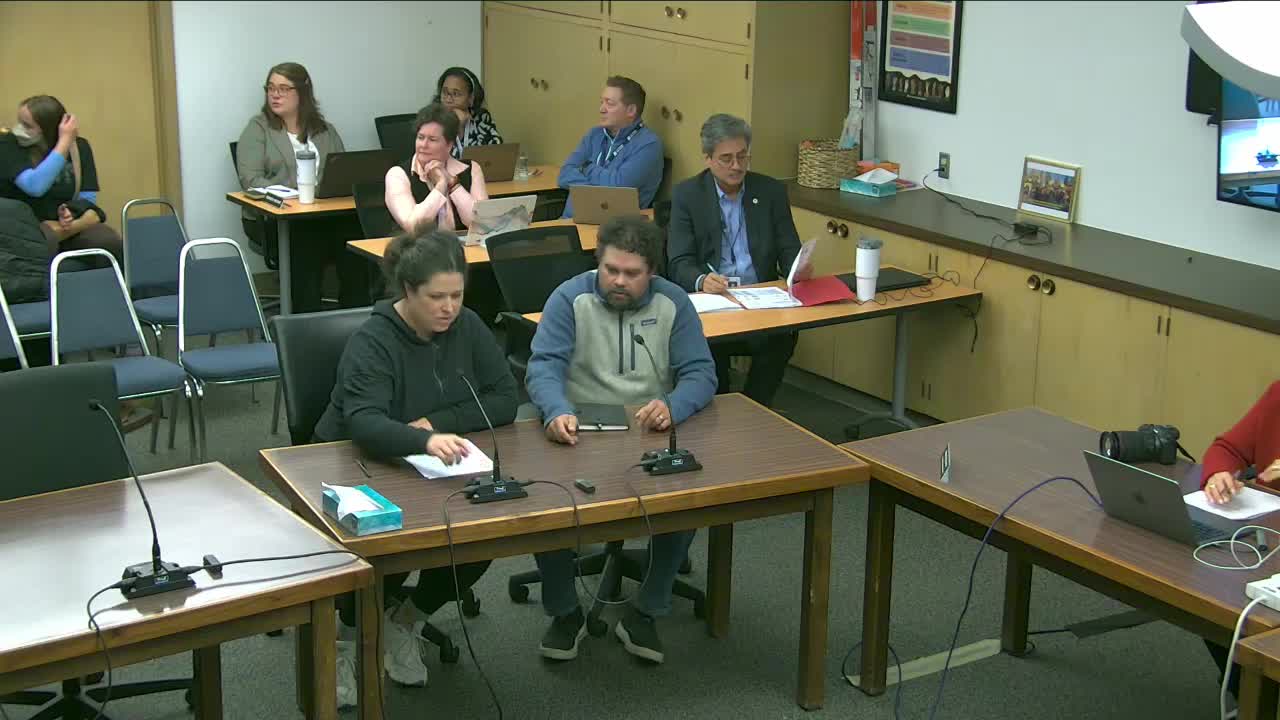Residents press board over Lakeridge High cell tower; district hires tester, schedules December report
Get AI-powered insights, summaries, and transcripts
Subscribe
Summary
Residents asked the Lake Oswego School District about lease terms and testing plans for a new Verizon cell tower at Lakeridge High School. District staff said Crown Castle confirmed current monthly rent figures and that the district selected Apex to perform radio‑frequency testing; results will be presented in December.
At the Oct. 29 Lake Oswego School District board meeting, residents raised questions about a recently installed Verizon cell tower at Lakeridge High School and about who may access district land and rights‑of‑way to complete fiber connections.
In public comment, Annalie Adams said she had learned Ziply Fiber planned to access district property to connect to the tower, and later was told the company was operating under an old, voided franchise permit. “Once a lease is signed with the tower company such as Crown Castle, does Crown Castle have the ability to continually upgrade, change, or add equipment without seeking new approvals or consent from the school district?” Adams asked, citing concern that technology and health and aesthetic impacts have changed since the district’s original lease was signed in 1996.
Ben Adams, another resident, asked whether the district had found a contractor for testing and whether modeling would reflect continuous, 24‑hour exposure at the living level of nearby homes.
District business staff member Mister Ketzler told the board the district had confirmed monthly lease figures with Crown Castle and identified a discrepancy Adams had found in public records. Ketzler said Crown Castle confirmed a most‑recent monthly payment of $2,719.46 for one Crown Castle site and that the current term increased that monthly amount to $2,796.14. He also said the $2,415.77 figure Adams had seen in a records response was incorrect for that Crown Castle site and appeared to have been transposed from another schedule.
Ketzler reviewed the district’s seven existing cell‑site leases (six tower locations with one colocation). He said the contracts generally give the tenant the unilateral option to extend in five‑year blocks, meaning the district cannot unilaterally terminate a site at the end of a current term without risking contractual claims. He told the board several leases include renewal options that extend potential occupancy into the late 2030s and early 2040s.
On testing, Ketzler said the district evaluated three firms and selected Apex to perform radio‑frequency and environmental testing. “We have selected Apex, which does a lot of testing in...real broad areas,” Ketzler told the board. He said Apex performs lead, water and air quality tests and has equipment and staff qualified to measure radio frequency (RF) emissions. Ketzler said the district and Apex are finalizing the agreement and that Apex’s findings and representative readings would be presented at a December board meeting.
Board members and district staff said they want testing to be useful and manageable: staff will define minimum scope and duration (including some 24‑hour or longer cumulative measurements at representative heights and locations) but said the district cannot test every individual residence. Ketzler said staff will include measurements at heights and spots that reflect where students and neighbors raised concerns.
Ketzler and board members also told the meeting that questions about construction work in public right‑of‑way versus private property and any franchise‑easement expirations are matters for the city’s franchise and public‑works staff; the district’s easements are on the north side of the road and the Ziply work reportedly occurred on the south side.
The board did not take formal action on leases at the meeting; Ketzler said the district will return with the Apex testing report and suggested the board could consider next steps after receiving those results.
Ending: Ketzler said the district will present the Apex report at a December meeting, after which the board can decide whether to enter renewal discussions with tower operators whose current terms expire in 2026–2027.
